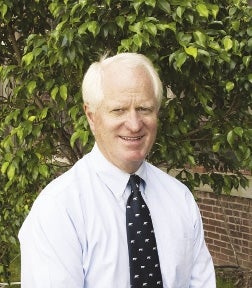To Strategic Materials, a national recycling company with a plant in Franklin, expanding the Massachusetts bottle bill to include the bottles of many non-carbonated drinks is a win-win proposal.
“We’re very much interested in the expansion of recycling in Massachusetts through the expansion of the bottle bill,” Vice President David Hudson said. “This will lead to not only reduction of waste [but] contributing to the economy in the way of more jobs.”
But to Worcester-based Polar Beverages, the expansion, which will be presented to voters as Question Two on state ballots in the fall, is a remarkably inefficient idea. Executive Vice President Chris Crowley said curbside single-stream recycling, paired with pay-as-you-throw trash disposal policies, can improve recycling rates even more and at a far cheaper price.
“You’ve got a very efficient model versus a very inefficient model,” he said. “In business, you always look for the most efficient way to do any task.”
Of course, Strategic and Polar have reasons beyond the environment and the economy for taking the positions they do. Some of the new jobs Hudson mentioned would be added at the company’s plant because it would generate more business. And, while Polar makes mostly carbonated beverages that are covered under the current bottle law, Crowley said expanding that law would force supermarkets to devote more space to recycling, potentially cutting into the space available for products, like Polar sodas.
In politics, it can be easy to see business interests as a block, and there are certainly issues that companies and the associations representing them can rally around. But, as the four ballot questions Massachusetts voters will consider on Nov. 4 demonstrate, other times they divide businesses and business groups.
Sick time: Groups lean toward ‘no’
The most pressing question on the ballot for some business groups is Question Four, which would provide for all workers to earn sick days. For businesses with more than 11 workers, the days would be paid, while smaller companies would simply have to provide unpaid days off.
Bill Vernon, state director of the National Federation of Independent Businesses (NFIB), said the question is especially worrisome to companies like retailers and restaurants. “In my office, if somebody’s out sick we make do for a day or two until they come back, but in the service industry you can’t do that,” he said.
Vernon noted that the question comes on the heels of new requirements for businesses under the federal Affordable Care Act, as well as the recently passed increase in the Massachusetts minimum wage. He said some small business owners are frustrated by all the new rules.
“I think the sick leave, for a lot of our members, it goes right to the core of being able to run their own business and being able to pay people and accommodate people the best way they can,” he said.
On the other hand, most businesses, particularly large employers, already provide sick leave to their employees. The Massachusetts Taxpayers Foundation (MTF), a group backed by many big companies, has not taken a position, although President Michael Widmer said he sees it as a “sleeper” issue because it could create more reporting requirements for all companies.
“If it passes, it’s likely to be a fairly extensive set of regulatory requirements that are going to be imposed on businesses,” he said. “My concern about it is more regulatory than the policy itself.”
The Associated Industries of Massachusetts (AIM) is against the paid sick leave question, even though 85 percent of its members already offer the benefit, according to Christopher Geehern, executive vice president for marketing and communications. He said the group’s big concern is that it would hurt companies that offer benefits in innovative ways, such as combining sick, personal and vacation days into a single “paid time off” benefit.
“As an organization, we do not oppose the idea of paid leave,” he said. “What we oppose is government bureaucratic mandates in terms of how employers structure their benefit programs.”
Steve Crawford, a spokesman for the Massachusetts Paid Leave Coalition, said there’s no evidence that sick-day laws passed in other parts of the country have hurt the business climate. In fact, he said, helping low-paid workers keep their paychecks even when they’re sick can be a net benefit to the local economy.
“It keeps money in the hands of people who then spend it in their neighborhood,” he said.
Casinos: No positions
Even within business groups, opinions can be divided. That’s part of the reason that AIM, NFIB and MTF have all declined to take a position on Question Three, which would prohibit casinos and other gambling establishments, reversing plans for up to three resort-style casinos and a slots parlor in the state. Vernon said some restaurants and entertainment companies feel threatened by the new casinos.
“They feel that (a) dollar that a consumer might spend at a small business is now going to be spent at casinos,” he said. But, he said, many members also think that “people should be allowed to do what they want to do with their money and we shouldn’t be restricting that.”
Gas-tax indexing: Split opinions
Both AIM and MTF oppose Question One, which would eliminate inflation indexing for the gas tax. Widmer said MTF is trying to make sure the state gets the road and bridge improvements it needs to support business activity. The gas-tax indexing “is an important feature of the transportation finance bill that was passed a year ago,” he said.
NFIB, which generally takes more anti-tax positions than MTF, supports the elimination of inflation indexing, but on this question, Vernon notes, “The business community is not as united as it might be,” he said.

